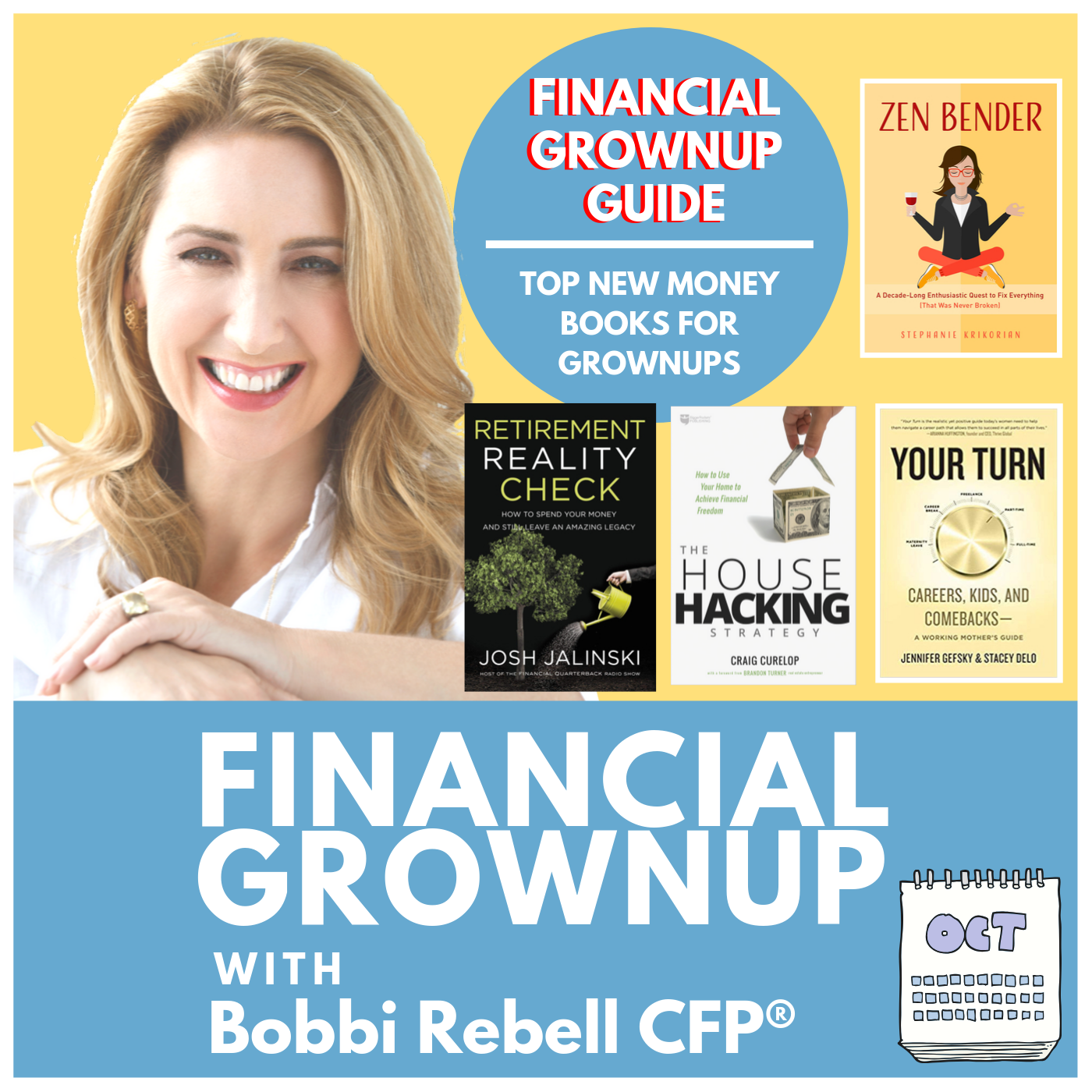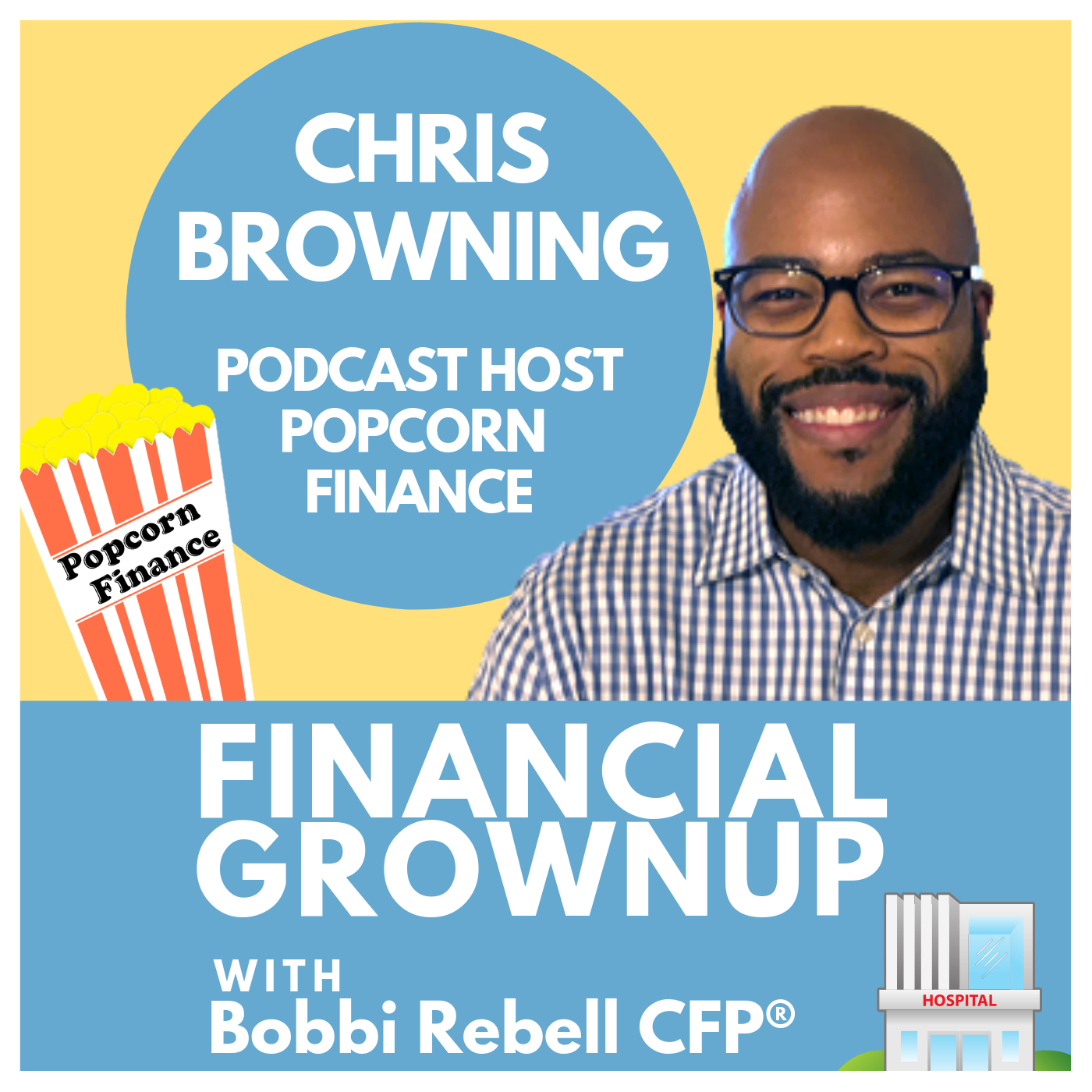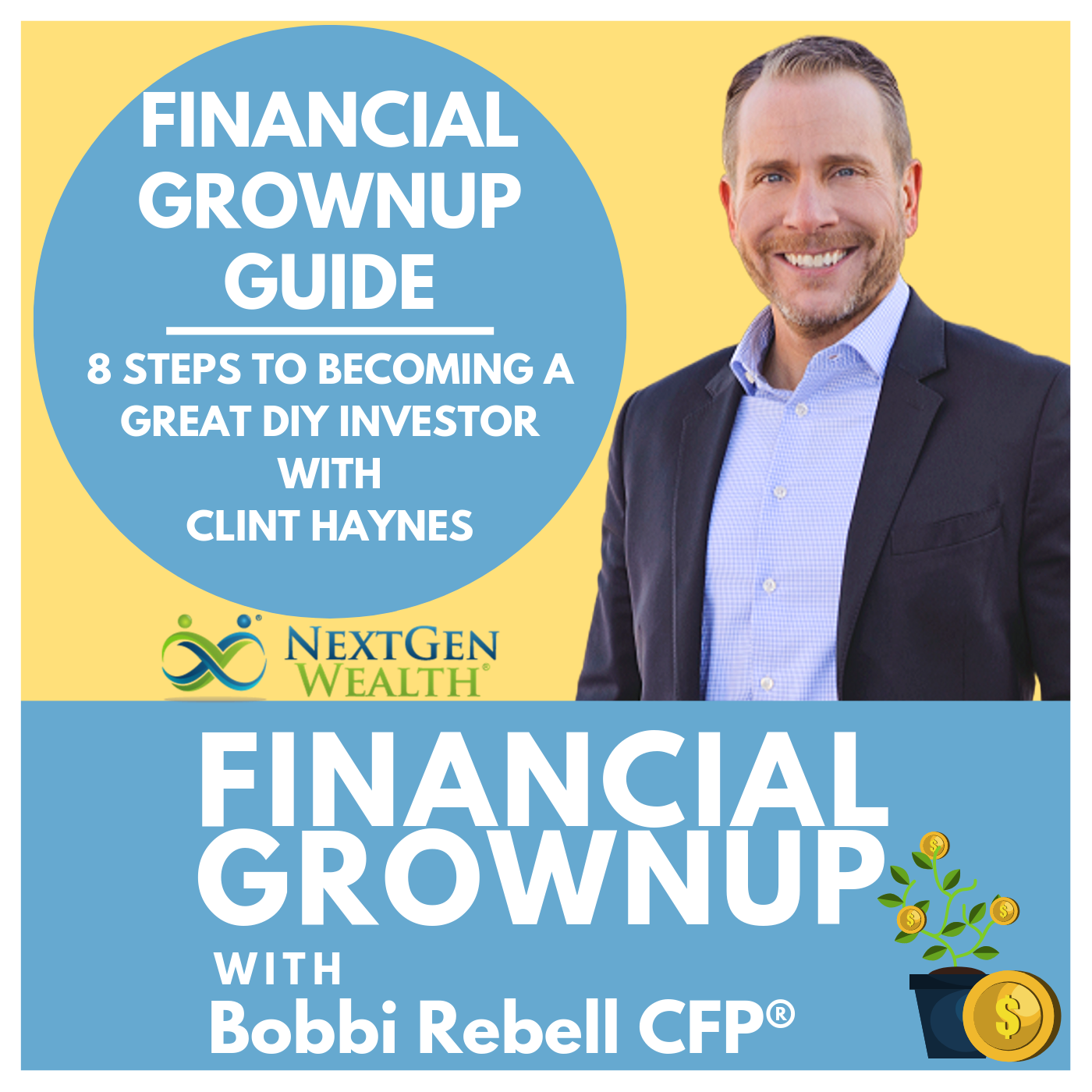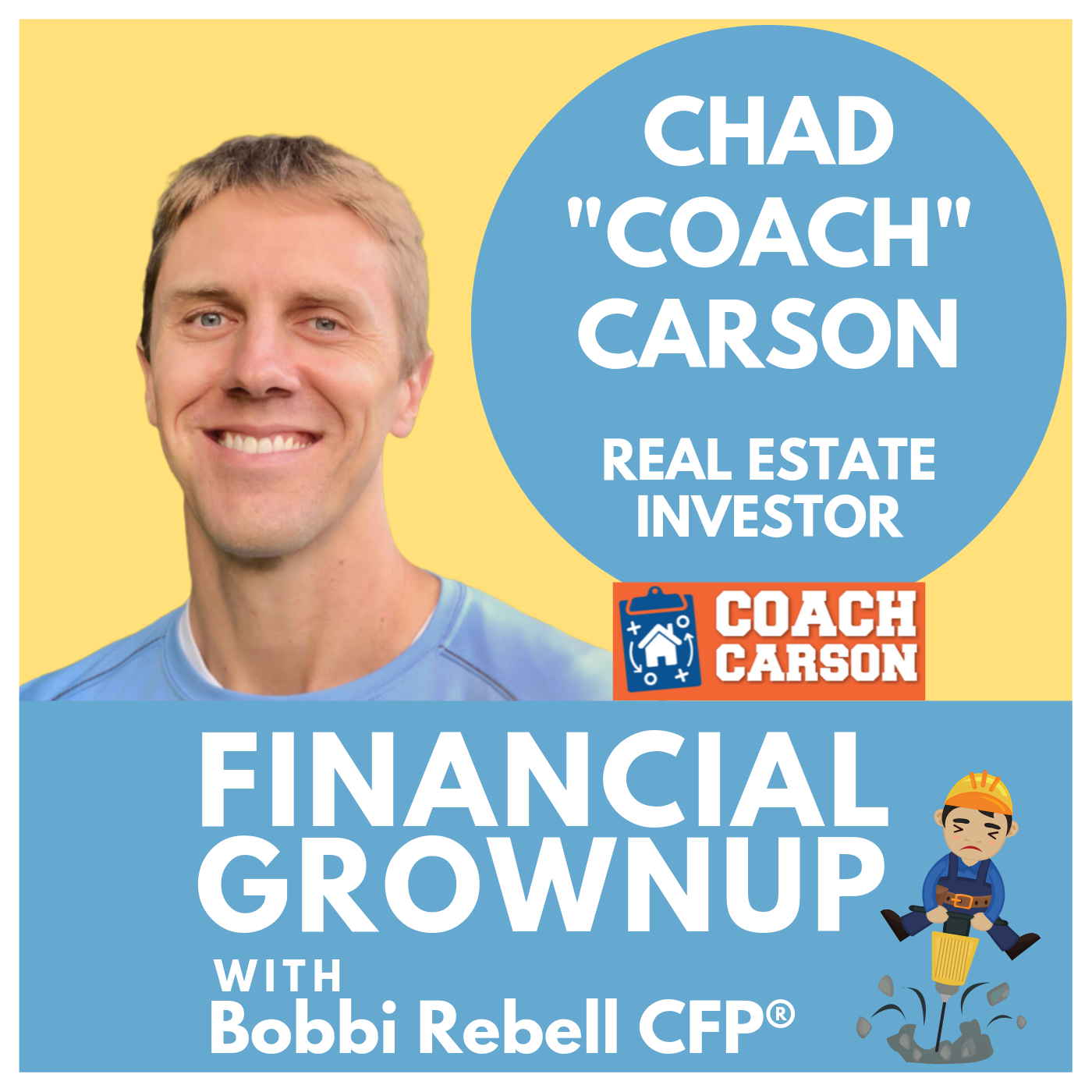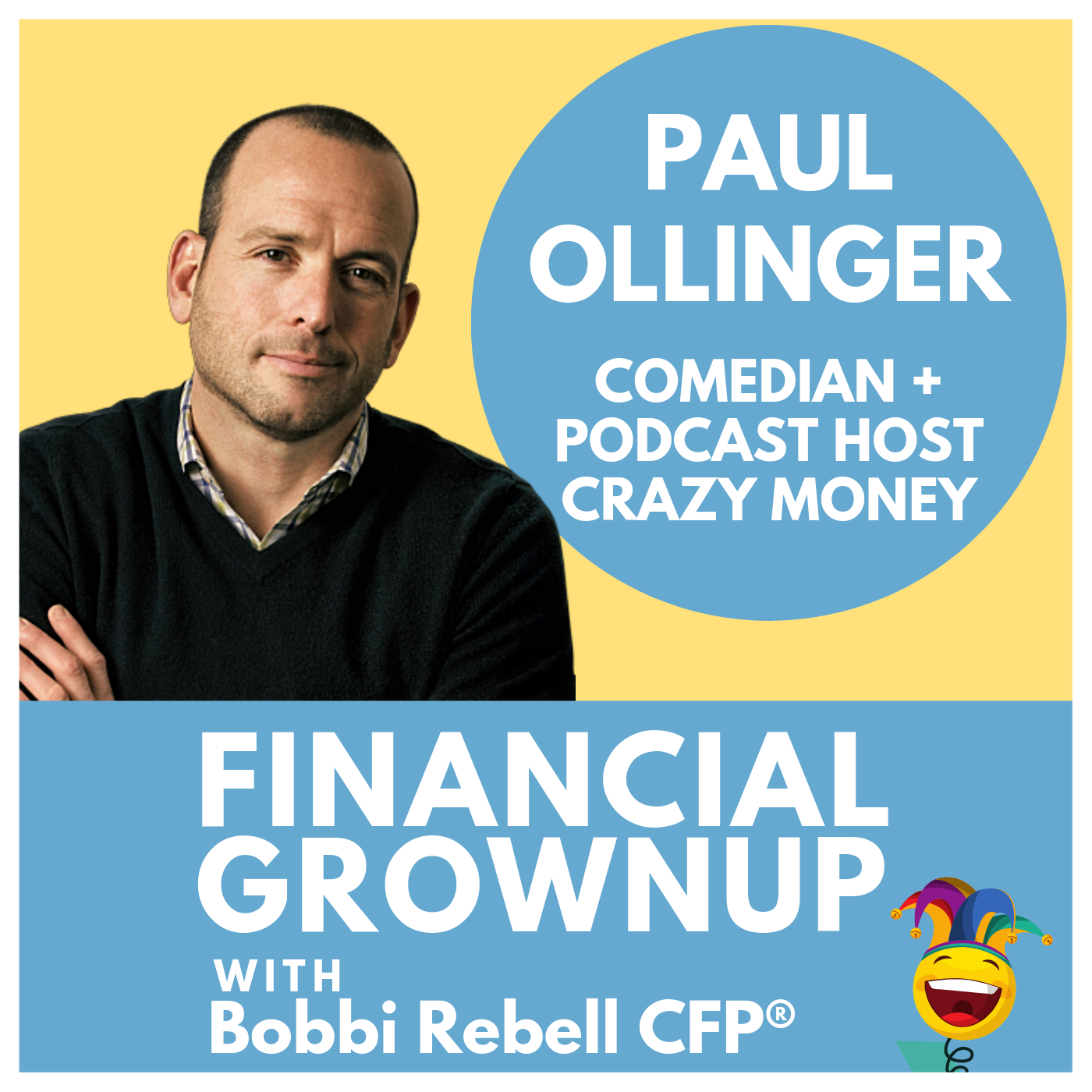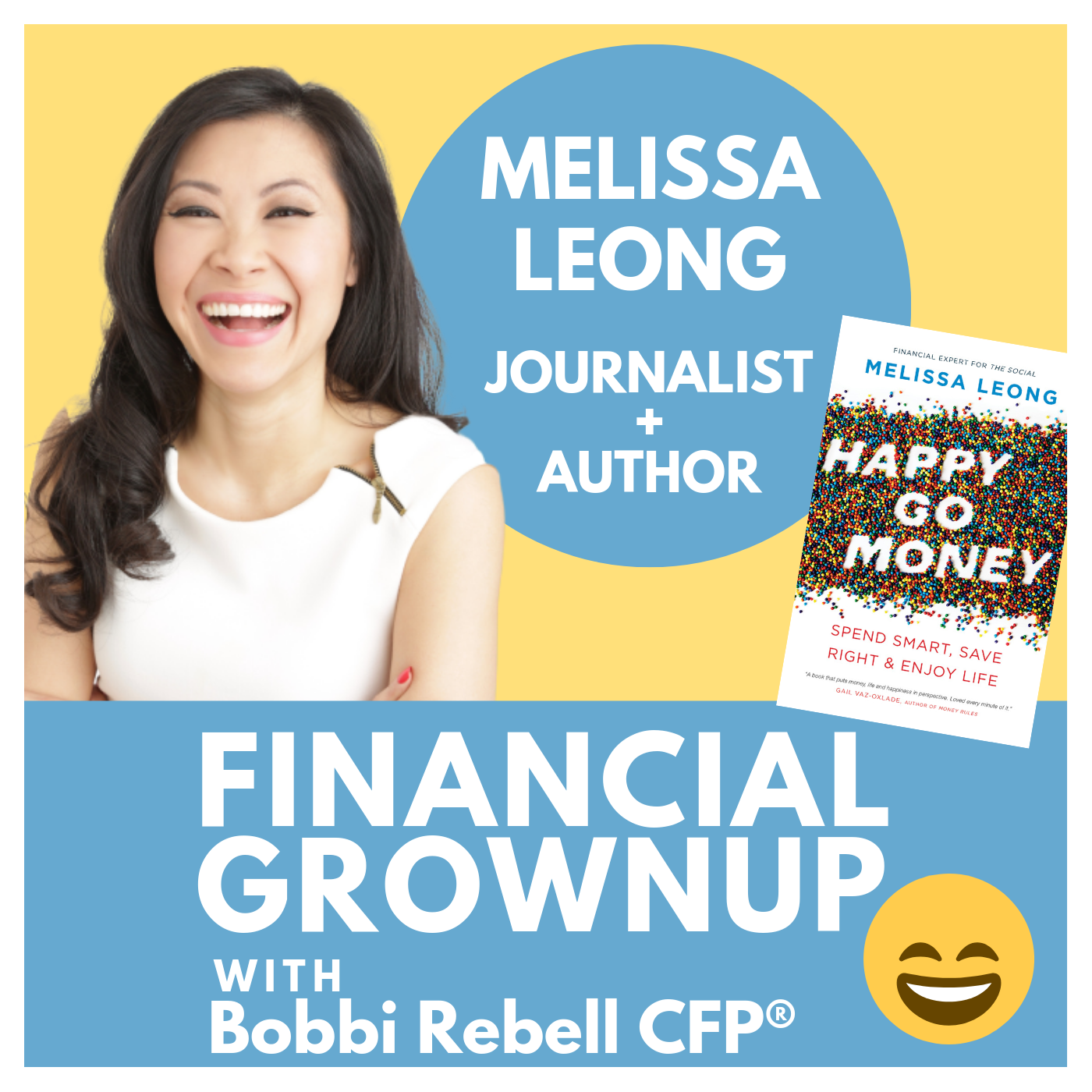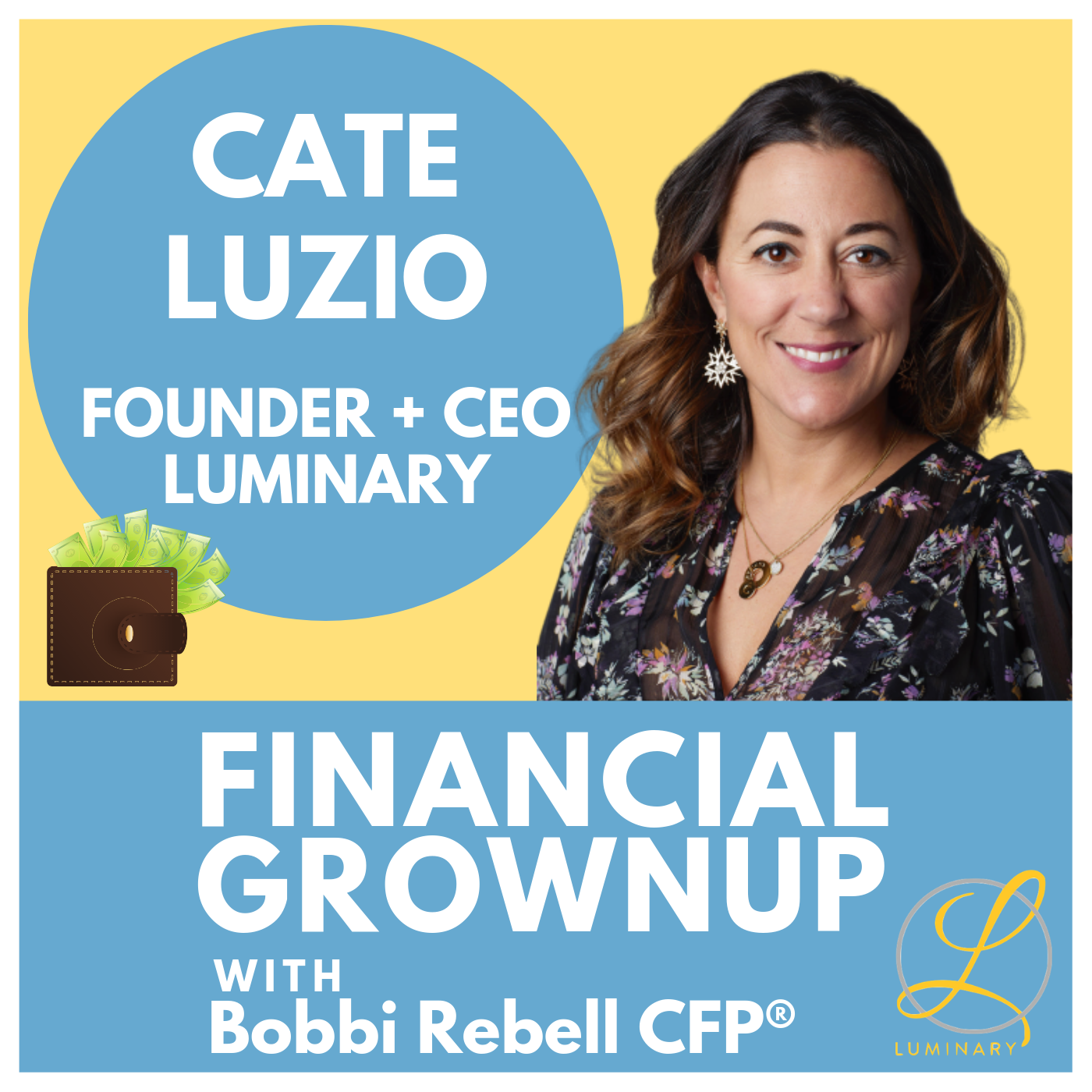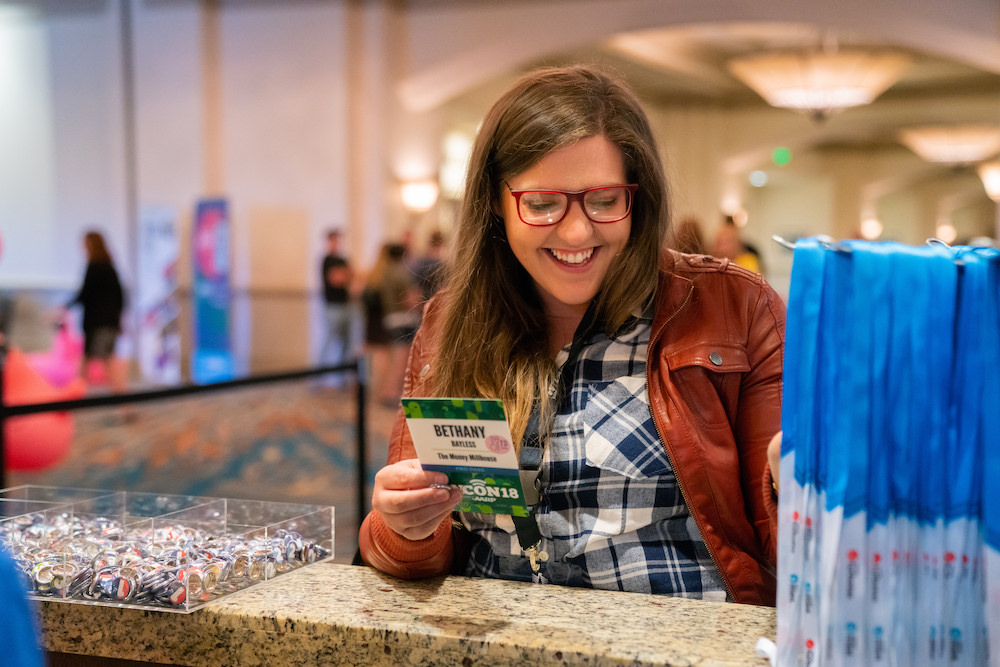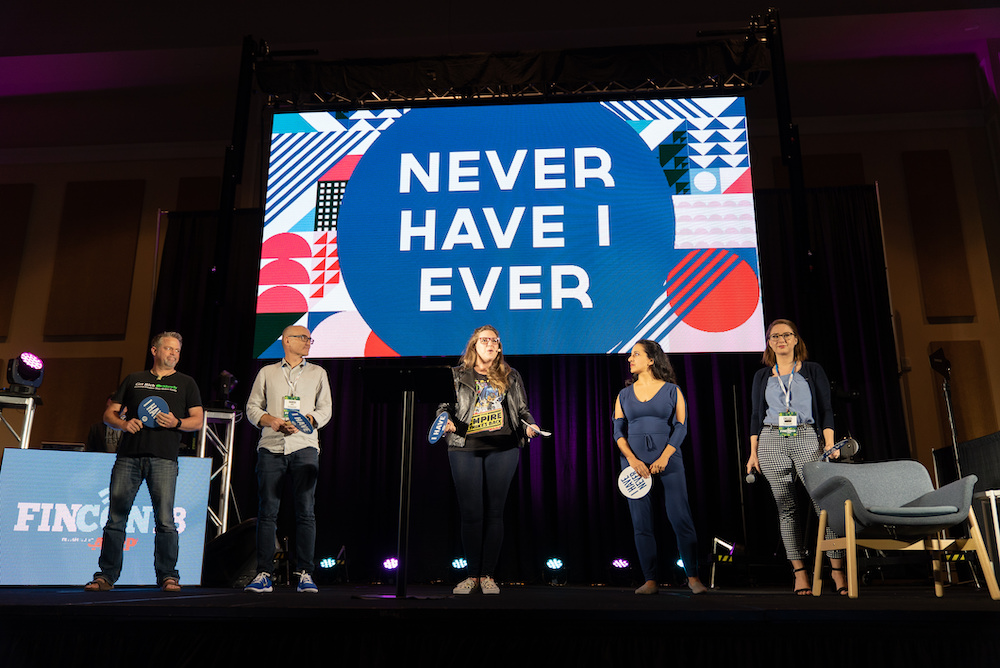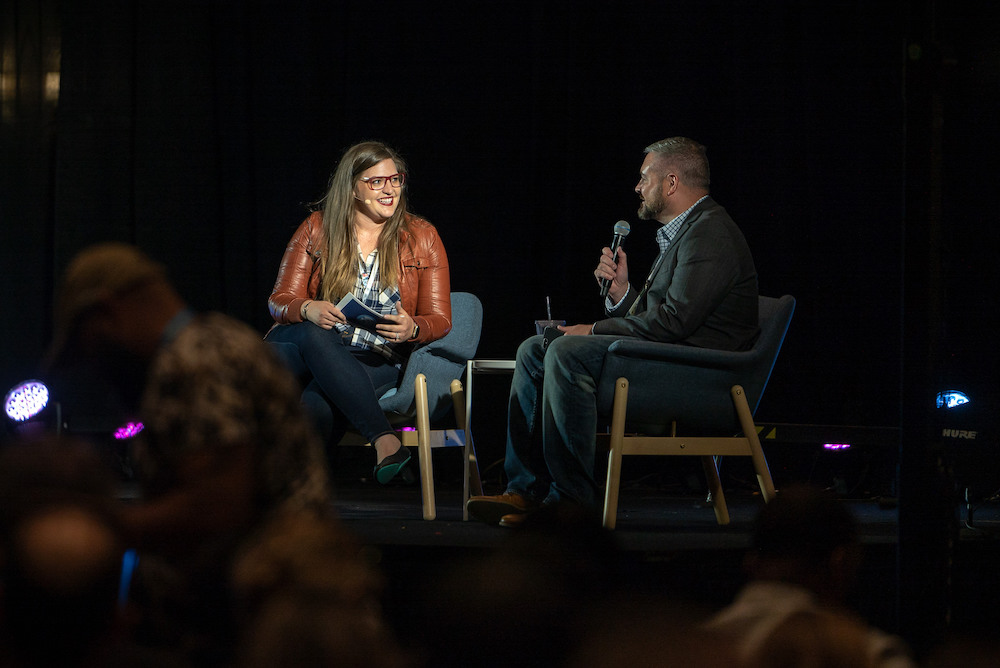After buying 39 properties in one year, real estate investor, blogger and podcaster Chad “Coach” Carson had second thoughts about his fast paced business, and totally reworked his business, to reflect his values.
Chad’s Money Story:
Chad Carson:
Yeah, so you can imagine sprinting up a mountain is probably not a good idea for anybody. Sprinting up's a little dangerous. But my story is I graduated from college about 18 years ago almost now. Amazing. But I graduated from college, I thought I would go into one career as a, I was biology major, pre-med. I thought that's what I would do. I took a break just to be an entrepreneur, and I started flipping houses, like finding properties to buy and got into the real estate investing thing, and I-
Bobbi Rebell:
Wait. Back it up a little. How does that just happen?
Chad Carson:
Yeah, so I just read some books on a shelf. My father was in rental properties, had rental properties, and so he happened to have some real estate books on his shelf. I'm at home post-college saying, "What am I going to do with my life?" I said, "I think I'm going to do this instead for a couple of years instead of going to medical school," which was a little crazy at the time because that was the normal path I probably should take in society. But I decided to be an entrepreneur. I lived at home for a year. My second year in business, I lived in my business partner's spare bedroom for free, so I was just basically bootstrapping it as long as-
Bobbi Rebell:
Wait.
Chad Carson:
... I could.
Bobbi Rebell:
So wait, was your father helping you? Who was your business partner? How did you get to that point?
Chad Carson:
Yeah, so my parents definitely helped me the first year because I lived at home.
Bobbi Rebell:
Were they wanting you to go to medical school, or were they happy for you to kind of-
Chad Carson:
They were happy for me to do this as well, so I had support from them. My father was an entrepreneur. My mother was a dentist, so she's in the medical field, but they, they were happy with it. They were encouraging me, so I was very fortunate in that respect. But after a year, I was on my own, and so this has saved up some money, moved to a different state. That's when I met a, it was a friend of mine from college and we just went into business together. Neither one of us have business experience with real estate. Neither one of us had a lot of money, so it wasn't the smartest type of start as a real estate venture, but we were scrappy. We liked the hustle, and we were ready to sprint, which I guess is kind of part of the part of the story.
Chad Carson:
We went to a class, and we watched a... the person who's teaching that class had some really exciting, kind of inspiring goals where they were buying and selling a lot of properties. We just sort of gravitated to that and said, "Hey, that sounds good. That's a good goal to have. Why don't we go buy and sell a lot of properties?" They were buying and selling like 50 properties per year.
Bobbi Rebell:
Okay, wait. Let me just stop you there because there's a fine line between the people that are the real deal that will legitimately teach you, and then there's a lot of people out there that make a lot of promises to people. These real estate conferences or presentations and they say, "We're going to help you do that," are notorious for not always being on the-
Chad Carson:
Exactly.
Bobbi Rebell:
... up and up. How did you-
Chad Carson:
Exactly.
Bobbi Rebell:
... know that yours was a good one, and what can people watch for if they go to these seminars to know if they're at a good one or not?
Chad Carson:
You hit the nail on the head that a lot of those are a little bit more rah-rah than they are the practical nuts and bolts of "here's how you do it." We took the rah-rah. I was 23 years old and just said, "Oh, we can do this. Let's go do it." As naive as that sounds, that's what I did. I would say, to go back to your question though, yeah, I always found that I got good information from a lot of things, but I would avoid paying, like there's, there's some where you, they're almost like pyramid schemes where you get in for free for one day. Then you have to pay 300 bucks to go for the weekend, and then you have to pay 10,000 bucks for our consulting and our course that lasts for six months. When they started getting in the pyramid scheme thing, you've lost me there. When you're brand new and you don't have much money and they're asking you to put money on credit cards and get a lot of credit card debt in order to learn about real estate investing, that's a problem. That-
Bobbi Rebell:
So look for red flags. What are the green flags?
Chad Carson:
The green flags are people who are doing it, who are still investing, and who are out there buying properties, who own rental properties. For me, the green flag is that they're not pushing you to do financially stupid things in order to buy their thing. If you're having to go into a lot of debt with credit cards to buy some person's program, yeah, that's a problem. You could spend that same amount of money going and buying an investment, and so that's an issue. We did spend some money on education. We did go to some classes obviously, but to our, I guess to our benefit, we went out and applied a lot of it. We started buying and selling a lot of houses and-
Bobbi Rebell:
How did get the capital to start? This is from saving from living at home for the one year?
Chad Carson:
No. We partnered with other people. I'm just getting out of college, and so I met a professor from Clemson University where I went to school, go Tigers, and this professor just mentioned that he invested in real estate. I just sort of stuck to him like glue after class and said, "Hey, could I follow you around or jump in your car and go look at your houses, just sort of... " probably annoying a little bit. But he recognized some sincerity there, and so I just started asking questions and learning from him and eventually said, "I'm out looking for properties. If I found a really good deal, is there some way you could put up the money, and we could both make a profit on this?"
Chad Carson:
He said yes. He started putting up some of the money. He's actually, to this day, 18 years later, the form of getting the money has changed, but that he's still been a private lender for our business almost 18 years later. We help fund his retirement. We pay him interest every month that allows him to do whatever he wants to do and travel with his family, and we have rental properties that allow us to pay him interest, and we make money as well.
Bobbi Rebell:
Okay, so you started out with a very ambitious plan with a partner, with an investor. What happens next?
Chad Carson:
Yeah, we got overheated. We bought... We got too big too fast. I guess the big issue was, or the sprint up the real estate mountain was that we went to classes, and other people were saying that bigger was better and buying a lot of properties is good, but we never really thought about like, why would we do that? What's the result of this in our lives that makes it good to get bigger and do it faster?
Chad Carson:
In 2007, so kind of history lesson that, recent history that people probably remember, 2007, 2008 a great recession, economy collapses, lots of real estate is kind of the core problem with that. We bought 30, we had 39 closings where we bought properties in 2007.
Bobbi Rebell:
Wow. I can't even imagine keeping track of all that.
Chad Carson:
Yeah, we got systematized. We were very organized. I'm organized. I've built business systems, and most of those are really good deals actually. We flipped some properties that made 50, 60,000 bucks on flipping a house, fixing it up and flipping it, so we did well. We had money in the bank. But we also bought some properties that were rental properties that we would keep for a longer period of times, and we made mistakes on a handful of them. Not all of them. We've made mistakes where we bought in wrong locations. We underestimated some of the remodel costs. What should have been a $15,000 budget was really a $30,000 budget for our remodel.
Chad Carson:
The long and short of it is, is that we got to the end of 2007, and I'll give credit to my business partner more than me, we were like, "We gotta slow this train down. We're going sprinting up this real estate mountain, but we're not really sure why we're going so fast and doing all this," and so we stepped back and thought about it and sort of reoriented our business and our goals. We each made a list of saying, "What are the things that are important to you in your life that this business and that the money this business is generating can support?" like what is it? It was really eye-opening because, on my list, I wrote down things like play pick-up basketball for two hours in the middle of the day.
Bobbi Rebell:
Wow.
Chad Carson:
You know how much money does that cost?
Bobbi Rebell:
Zero.
Chad Carson:
Zero. I had a pick-up basketball game-
Bobbi Rebell:
But it cost your time, Chad.
Chad Carson:
It cost-
Bobbi Rebell:
It cost your time.
Chad Carson:
Exactly, and so that was the big aha moment was that money is important. Money is one currency. It's not the only currency. I got that idea from the exact same time I read The 4-Hour Workweek by Tim Ferriss, which, so that idea itself of that you have multiple currencies in your life, money's a really important one, but a lot of the time, we sell all of our other currencies like our time and our flexibility, and we sell those for the highest bidder. We get to make the most money, and that's not the way it always needs to work, that you... especially as an entrepreneur and for all of us, if we're investing our own money on the side, we can decide how we orient and prioritize our life to some extent. That's what we tried to do.
Bobbi Rebell:
What happened with the business? You took it down a notch. What happened with these properties? 2007 was not a good year. 2008 I should say.
Chad Carson:
2008 was worse than 2007. We didn't buy that many properties after that. That's the long and short. We had some money saved in the bank, thankfully. We were very frugal. We didn't spend much of the money that we made, so that was a smart move. But we had to use a lot of that money because we had a lot of negative cashflow on certain properties where the tenant moved out and we had an extra 10 or 15,000 repairs that we didn't think we had, and so it was sort of a game of just pivoting, changing, learning how to be really good rental landlords, learning how to handle your cash flow and financing.
Chad Carson:
We did okay though. We didn't make any money for a year or two, but we didn't lose a bunch of money either. We got through that and sold some properties. We refinanced some properties, and we bought some new properties because it was one of the best times, and probably all of our lifetimes is 2009, 2010, 2011 to buy real estate because we had good relationships with people like my professor and other people we borrowed money from. We were actually able to buy some of the best deals we ever had in the years following that once we recovered and kind of got out of there.















